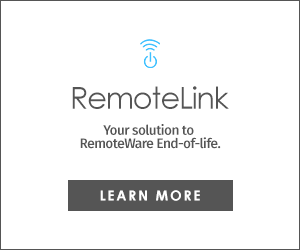%20with%20multicolored%20radial%20background.jpeg?width=320&name=Internet%20of%20Things%20infographic%20(bitmapped)%20with%20multicolored%20radial%20background.jpeg) Computers, sensors, microchips, smartphones, and wearables; all things that are connected by means of the internet. The term, IoT, has sparked conversations, articles, and research, all of which has given us a glimpse into the businesses of the future. In this article, the focus is on retail and restaurant businesses. However, IoT also applies to biotechnology, transportation, smart homes, tactical devices, hardware, software, data, and service industries. As our technology horizons expand from wireless communication to real-time analytics, commodity sensors, and machine learning, so do the possibilities of the future for the internet of things.
Computers, sensors, microchips, smartphones, and wearables; all things that are connected by means of the internet. The term, IoT, has sparked conversations, articles, and research, all of which has given us a glimpse into the businesses of the future. In this article, the focus is on retail and restaurant businesses. However, IoT also applies to biotechnology, transportation, smart homes, tactical devices, hardware, software, data, and service industries. As our technology horizons expand from wireless communication to real-time analytics, commodity sensors, and machine learning, so do the possibilities of the future for the internet of things.
IoT for Retail Business
Retail success is about the customer experience. Having the ability to capture and analyze behavioral data is the difference between good and exceptional customer service. Implementing IoT measures allows stores to tailor promotions, store layout, company interactions, and the complete shopping experience. Now, retailers have the opportunity to:
- Increase responsiveness
- Obtain real-time customer experience
- Have greater visibility in supply chains
- Improve inventory management
- Optimize product selections
- Use heat sensors to track customer routes for optimal product placement
- Location based marketing
Imagine the retail stores of the future with smart shelves to notify employees when a stock is low, mirrors to help customers virtually try on clothing, and scannable products that give reviews, comments, ratings, and variations available online and in-store. Though it remains early in the adoption process, stores are already using elements of IoT with;
- Buy Online, Pickup In-Store Options
- Mobile POS Devices
- Security Sensors
- RFID
![]() You may also be interested in reading: Why Many Retailers Fail and What You Can Do To Avoid It
You may also be interested in reading: Why Many Retailers Fail and What You Can Do To Avoid It
IoT for Restaurants
The restaurant business has one of the highest industry turnover rates. To be successful, you need more than great food and a decent ambiance. Restaurants require the same level of customer experience that every other B2C company does. As the business grows, being able to monitor your expenses, particularly energy use and cooking equipment, and gain real-time information, provides many insights and benefits including:
- Early identification of problems
- Energy waste reports
- Malfunctions and breakdowns
- Auto re-ordering for replacement parts
- Food safety reporting [for refrigeration temperatures and warming equipment].
The ability to monitor anything that cooks, cleans, and stores food allows you to adjust various measures and routines, resulting in more efficient and consistent operations. Using data to inform restaurant decisions is how businesses function and stay alive year after year. Looking at both quantitative and qualitative data, as it pertains to your restaurant's operations, leads to:
- Consistent food
- Less waste
- Cost savings
- Efficient energy use
- Better equipment use
- Greater customer experience
Success in the Internet of Things
As with every other element of running a business, be it retail or restaurant, you need inter-department communication and relationships. Specifically, you need your entire business group to work together with IT and commit to the hardware and software initiatives put in place. This starts at the executive level and requires strong, encouraging leadership to effect. You must integrate IoT in the company culture itself and train your employees on how to read, understand, and interpret data to inform day-to-day activities.
Other Great Reads for IoT and Retail:
How the Internet of Things Will Revolutionize Retail
7 in 10 Retailers to Invest in IoT Technology
Accenture, The Internet of Things
How the Internet of Things is Revolutionizing Retail
Other Great Reads for IoT and Restaurants:
The Internet of Things in Restaurants



